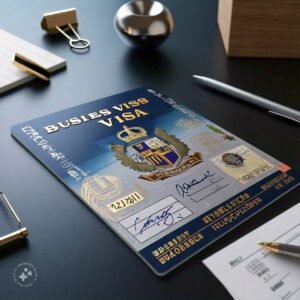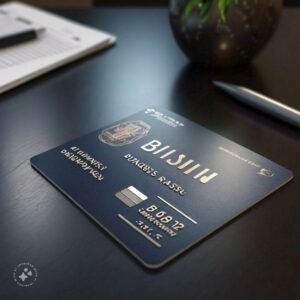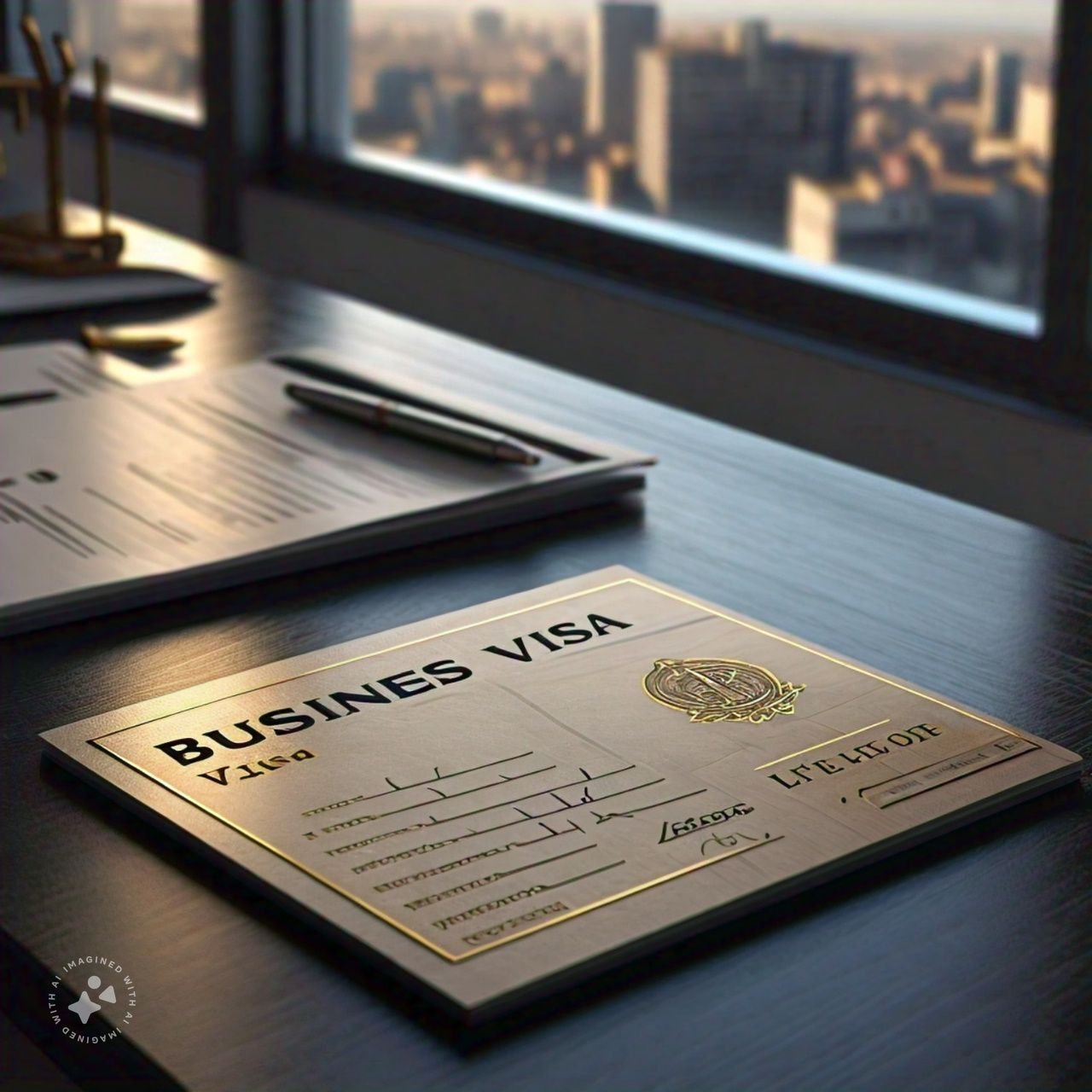Introduction
Business visas play a vital role in facilitating international trade and business operations. These visas allow foreign nationals to enter a country for business-related activities, such as meetings, conferences, or investment opportunities. Understanding the different types of business visas is crucial for selecting the right one for your needs.
Each business visa serves a specific purpose and has unique eligibility criteria. Whether you are an investor looking to fund a new venture, an entrepreneur aiming to start a business, or a company needing to transfer employees, there is a suitable visa for you.
Applying for a business visa involves several steps, including completing the application form, gathering supporting documents, and meeting eligibility requirements. Paying attention to details and following the correct procedures is essential to ensure a smooth application process.
This guide will provide an overview of the various types of business visas available, outline the eligibility requirements, and explain the application process. By understanding these aspects, you can better prepare for your international business ventures and increase your chances of obtaining a successful visa.
read more : Required Documents for a Passport
Types of Business Visas
Investor Visas
Investor visas are ideal for individuals who plan to make significant financial investments in a foreign country. These visas require applicants to show proof of substantial capital and a clear investment plan. The investment must benefit the local economy, often leading to job creation or economic growth.
Entrepreneur Visas
Enterpreneur visas canter to those who wish to start or run a business abroad. Applicants must present a solid business plan that outlines the venture’s potential to create jobs and contribute to the economy. Financial stability and relevant business experience are crucial for securing this visa.
Business Visitor Visas
Business visitor visas allow individuals to visit a country for short-term business activities. These visas are intended for tasks like attending meetings, conferences, or negotiations. They do not permit employment and typically have a limited duration, making them ideal for temporary business engagements.
Intra-Company Transfer Visas
Intra-Company transfer visas enable employees of multinational companies to transfer to a branch or affiliate in another country. Applicants need to provide proof of employment and the necessity of the transfer. These visas are essential for companies needing to move key personnel across borders.
Each type of business visa serves distinct purposes, ensuring businesses can operate smoothly across international boundaries.

Eligibility Requirements
Meeting eligibility requirements is crucial for a successful business visa application. Investor visas require applicants to demonstrate substantial financial resources. Applicants must prove their ability to invest a significant amount of capital in the host country. A clear investment plan that benefits the local economy is essential.
Entrepreneur visas demand proof of a viable business idea. Applicants must show that their business will create jobs and contribute to the economy. A comprehensive business plan and evidence of financial stability are necessary. Experience in business management can also strengthen your application.
For business visitor visas, applicants must prove that their visit is for legitimate business activities. Providing an invitation letter from a business partner or organization in the host country is often required. Applicants must also demonstrate they have sufficient funds to cover their stay and return travel.
Intra-company transfer visas require proof of employment with a multinational company. Applicants must show that the transfer is necessary for their role and that they possess essential skills. Documentation of their employment history and a letter from the employer outlining the need for the transfer are typically required.
Meeting these eligibility criteria enhances your chances of obtaining a business visa and successfully conducting business abroad.
Application Process
The application process for a business visa involves several key steps. Begin by completing the visa application form with accurate and up-to-date information. Ensure all sections are filled out correctly to avoid delays.
Next, gather the required supporting documents. These typically include identification, financial records, and relevant business documents. Each visa type may have specific requirements, so verify these before submitting your application.
Submit your completed application and documents to the appropriate embassy or consulate. Some countries allow online submissions, while others may require in-person visits. Follow the submission guidelines provided by the embassy to ensure your application is processed smoothly.
Pay the visa fee as specified by the embassy or consulate. Fees vary depending on the visa type and applicant’s nationality. Make sure to retain proof of payment, as it may be needed later in the process.
After submission, prepare for a possible interview. The interview assesses your eligibility and intentions for the visa. Be ready to discuss your business plans and financial situation in detail.
Finally, wait for the processing of your application. Processing times vary, so plan accordingly. Once approved, you will receive your visa, allowing you to pursue business activities in the host country.
Required Documents
Submitting the correct documents is essential for a successful business visa application. Identification documents are the first requirement, including a valid passport with at least six months of remaining validity. Your passport must also have enough blank pages for visa stamps.
Proof of financial stability is crucial. This typically includes recent bank statements, investment records, or financial guarantees. These documents demonstrate your ability to support yourself during your stay and fund your business activities.
For investor visas, provide a detailed investment plan. This plan should outline how your investment will benefit the local economy. Include evidence of the investment amount and the sources of your funds.
Entrepreneur visas require a comprehensive business plan. The plan must detail your business model, market analysis, and financial projections. Additionally, include proof of your business experience and qualifications to strengthen your application.
For business visitor visas, an invitation letter is often required. The letter should be from a business partner or organization in the host country and must specify the purpose and duration of your visit. Also, include evidence of your accommodation and return travel arrangements.
Intra-company transfer visas require proof of employment with a multinational company. Submit an employment letter and details about the necessity of the transfer. These documents ensure your application is complete and increases your chances of visa approval.
Fees and Processing Time
Visa fees and processing time vary based on the country and visa type.
Visa fees
fees are typically non-refundable and cover administrative costs. The exact amount depends on the specific visa category and the applicant’s nationality. It’s essential to check with the relevant embassy or consulate for accurate fee information.
Processing time
Processing time also differs, ranging from a few weeks to several months. Factors like visa type, applicant’s country of residence, and the volume of applications can influence this duration. Applying well in advance of your intended travel date is advisable to accommodate potential delays.
Investor visas
Investor visas usually involve more extensive reviews, leading to longer processing times. This is due to the need for thorough financial checks and verification of the investment plan. Entrepreneur visas may also require additional time for evaluating the proposed business’s potential impact on the local economy.
Business visitor visas
Business visitor visas generally have shorter processing times, as they involve less complex evaluations. Intra-company transfer visas might take longer due to the need for detailed verification of employment and transfer necessity.
Understanding the fees and processing times allows better planning for your business activities abroad. This ensures you can meet your business goals without unexpected delays.

Tips for a Successful Application
To ensure a successful business visa application, follow these essential tips. Prepare thoroughly by gathering all required documents well in advance. Make sure every document is accurate, up-to-date, and meets the visa requirements.
Complete the application form carefully. Double-check all details to avoid errors or omissions. Providing clear and consistent information helps prevent delays or potential rejections.
Submit a strong business plan if applying for an entrepreneur or investor visa. Your business plan should clearly demonstrate the viability of your business idea and its potential economic benefits. Include market research, financial projections, and operational strategies.
Pay attention to deadlines and submit your application on time. Late submissions can lead to processing issues or missed opportunities. Set reminders for important dates to ensure you meet all deadlines.
Seek professional advice if needed. Consulting with an immigration lawyer or visa consultant can provide valuable guidance. They can help you navigate complex requirements and improve your application’s quality.
Prepare for your visa interview by practicing responses to potential questions. Be ready to discuss your business plans and financial situation confidently. Present your intentions clearly to increase your chances of approval.
Following these tips will enhance your application’s success, helping you secure your business visa efficiently.
Common Mistakes to Avoid
Avoiding common mistakes can significantly improve your chances of a successful business visa application. Incomplete applications are a frequent issue. Ensure all sections of the application form are thoroughly filled out with accurate information.
Providing incorrect or outdated information can lead to application delays or outright rejections. Double-check all details before submitting your application to ensure accuracy. Ensure that all supporting documents are current and valid.
Missing required documents is another common error. Review the visa requirements carefully to ensure you include every necessary document. Missing even one document can cause delays or result in a rejection.
Ignoring application deadlines can jeopardize your visa process. Submit your application well before any deadlines to allow for processing time. Track important dates and set reminders to avoid missing deadlines.
Failing to proofread your application and supporting documents can lead to easily avoidable errors. Take the time to review all materials for spelling and grammatical mistakes. Errors can create a negative impression and affect your application’s outcome.
Not seeking professional help when needed is a common mistake. If you are uncertain about any aspect of the application, consult an immigration expert. Professional guidance can help you avoid costly mistakes and strengthen your application.
